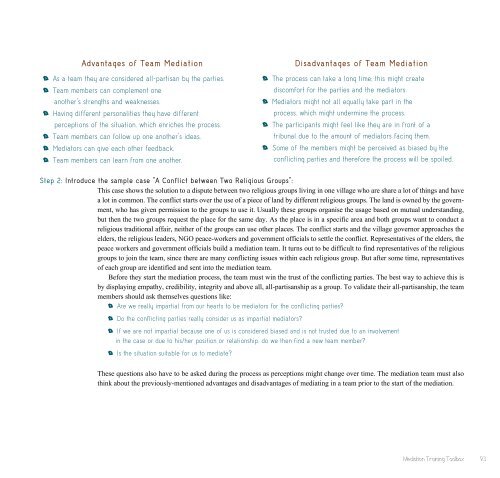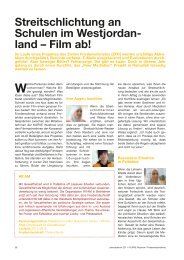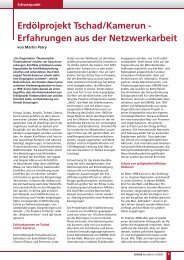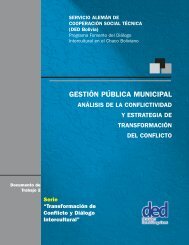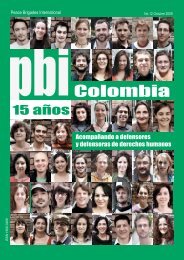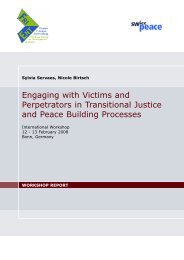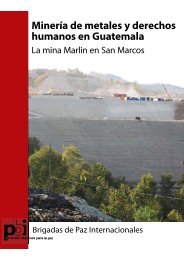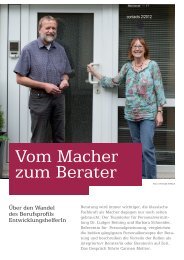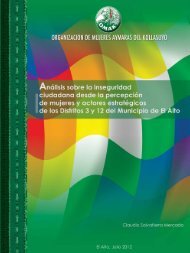Merging Ethiopian Wise-Counsel Mediation and Facilitative ...
Merging Ethiopian Wise-Counsel Mediation and Facilitative ...
Merging Ethiopian Wise-Counsel Mediation and Facilitative ...
- No tags were found...
Create successful ePaper yourself
Turn your PDF publications into a flip-book with our unique Google optimized e-Paper software.
Advantages of Team <strong>Mediation</strong>> > As a team they are considered all-partisan by the parties.> > Team members can complement oneanother's strengths <strong>and</strong> weaknesses.> > Having different personalities they have differentperceptions of the situation, which enriches the process.> > Team members can follow up one another's ideas.> > Mediators can give each other feedback.> > Team members can learn from one another.Disadvantages of Team <strong>Mediation</strong>> > The process can take a long time; this might creatediscomfort for the parties <strong>and</strong> the mediators.> > Mediators might not all equally take part in theprocess, which might undermine the process.> > The participants might feel like they are in front of atribunal due to the amount of mediators facing them.> > Some of the members might be perceived as biased by theconflicting parties <strong>and</strong> therefore the process will be spoiled.Step 2: Introduce the sample case "A Conflict between Two Religious Groups":This case shows the solution to a dispute between two religious groups living in one village who are share a lot of things <strong>and</strong> havea lot in common. The conflict starts over the use of a piece of l<strong>and</strong> by different religious groups. The l<strong>and</strong> is owned by the government,who has given permission to the groups to use it. Usually these groups organise the usage based on mutual underst<strong>and</strong>ing,but then the two groups request the place for the same day. As the place is in a specific area <strong>and</strong> both groups want to conduct areligious traditional affair, neither of the groups can use other places. The conflict starts <strong>and</strong> the village governor approaches theelders, the religious leaders, NGO peace-workers <strong>and</strong> government officials to settle the conflict. Representatives of the elders, thepeace workers <strong>and</strong> government officials build a mediation team. It turns out to be difficult to find representatives of the religiousgroups to join the team, since there are many conflicting issues within each religious group. But after some time, representativesof each group are identified <strong>and</strong> sent into the mediation team.Before they start the mediation process, the team must win the trust of the conflicting parties. The best way to achieve this isby displaying empathy, credibility, integrity <strong>and</strong> above all, all-partisanship as a group. To validate their all-partisanship, the teammembers should ask themselves questions like:> > Are we really impartial from our hearts to be mediators for the conflicting parties?> > Do the conflicting parties really consider us as impartial mediators?> > If we are not impartial because one of us is considered biased <strong>and</strong> is not trusted due to an involvementin the case or due to his/her position or relationship, do we then find a new team member?> > Is the situation suitable for us to mediate?These questions also have to be asked during the process as perceptions might change over time. The mediation team must alsothink about the previously-mentioned advantages <strong>and</strong> disadvantages of mediating in a team prior to the start of the mediation.<strong>Mediation</strong> Training Toolbox93


